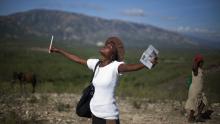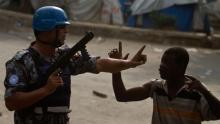Haiti's a Budding Tourism Destination
For many years, Haiti was a significant tourist destination. However, the industry never recovered from the American embargo, erronous claims that the HIV/AIDS epidemic began in Haiti, political instability, and natural disasters made worse by deforestation and erosion. Despite that, tourism has a great deal of untapped potential. Sure the beaches and rum are great but other Caribbean countries have that as well. It is Haiti's unique history and culture that could bring the right kind of visitors. New York Daily News journalist Jesse Serwer writes below that Trump's "shithole" comment spurred interest in Haiti, including visits by celebrities such as Conan O'Brien who filmed a special there recently. Read through his article and you just may find yourself planning your next vacation.












